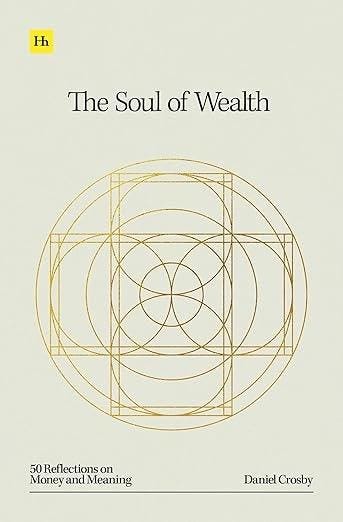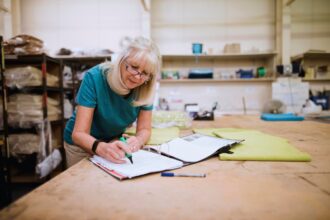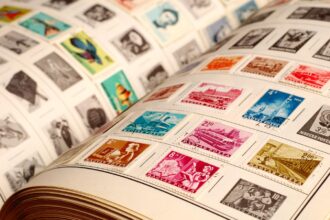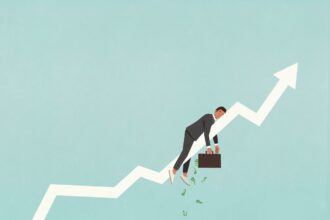Recently, I had the privilege and pleasure of meeting with Dr. Daniel Crosby, the author of several great books, including his newest, The Soul of Wealth. We met ostensibly to discuss the book, which we did, but he shared something else with me that is tangential to its themes, which was not explicitly mentioned.
Whether this is the equivalent of the secret track on a 90’s CD that you didn’t learn about until you forgot to turn Nirvana’s Nevermind off after listening to “Something in the Way” or the precursor to the next great work in the Crosby canon, I’ve got permission to share it with you here. And I submit that it provides a memorable mental model that you can absolutely use to live a healthier, wealthier, and happier life in the New Year.
Believing. Belonging. Becoming.
That’s it. If you want to get more out of 2025, you likely can’t do better than investing your time—and quite possibly your money—into believing, belonging, and becoming.
Believing
You don’t have to believe what I believe, but you have to believe something, implores Dr. Arthur Brooks, social scientist at Harvard and the author of From Strength To Strength. “The sense of transcendent things bigger than you,” Brooks suggests, may manifest as a specific walk of faith that is foundational for many of us. At the very least, some semblance of belief or worldview that seeks to make the unknown more known is crucial for anyone hoping to put life’s daily frustrations in perspective and to help us cope with life’s even greater inevitable challenges.
Dr. Crosby, in Soul of Wealth, affirms the same directly and indirectly throughout the book, but especially in his explication of the PERMA model for human flourishing, developed by Dr. Martin Seligman, where the “M” stands for “Meaning,” the pursuit of purpose and connection to something greater than oneself.
And I also appreciate Crosby’s acknowledgement that nothing will tell us what we believe quite like our money—how it is allocated and spent. Analyzing our spending and seeing how our actions align with the articulation of our beliefs is a diagnostic tool, but more importantly, it can lead us to align our money with what’s most important to us in life.
Belonging
Yet it seems that we were also wired to believe with. With others, that is. Brené Brown couldn’t put it any more clearly or definitively: “A deep sense of love and belonging is an irreducible need of all people. We are biologically, cognitively, physically, and spiritually wired to love, to be loved, and to belong.”
In Soul of Wealth, Crosby invites us to connect these important dots: If happiness really boils down to loving and being loved, shouldn’t we consider spending our money in kind? Indeed, studies suggest that we may gain nearly twice as much joy from spending money on experiences than stuff. And when we share those experiences with others, the benefits compound even further!
Maybe that’s something you could even put to the test this year as we’re in the thick of the holidays. Perhaps you put this to the test by trading a gift that you’d typically give someone for an experience—an experience for that person, or better yet, an experience with that person or people.
Personally, I was almost surprised when I suggested to my then teenage boys that I thought we should spend half of our Christmas budget on a family experience—versus fully allocating it for tangible presents. Surprisingly, they didn’t push back, and that family experience around the holidays has become one of our favorite (and certainly our most memorable) signs of the season.
Becoming
But where are we going, or better said, what are we becoming? The first two Bs teach us that what we believe—and who we’re believing and experiencing life with—really matter. Yet, this final word is more about our personal trajectory. Here, I think you start to see this mental model as synergistic, because this becoming need not be a disconnected, individualist, or even selfish pursuit.
It’s the answer to the questions:
- Who do I want to be in the world?
- And, who do I want to be for the people I most want to be with?
Abraham Maslow (yup, of Maslow’s hierarchy of needs) put it this way: “What a man can be, he must be. This need we call self-actualization.”
Note the word he uses here, too: “need.”
And perhaps that’s what makes this message from Dr. Daniel Crosby so compelling— these three words matter so much within the context of our personal and financial growth because these aren’t just three nice ideas that give us a momentary sense of pleasure. It seems that we, as humans, actually have three needs that we can (and often do) choose to ignore, but only to our detriment. According to our collection of research:
- We have a need to see our existence as part of something bigger than ourselves.
- We have a need to be part of a tribe that is a microcosm of this existential whole.
- And we have a need to perpetually evolve, fight the powerful inertia of inactivity and indecision, and generate momentum to something better.
Therefore, in addition to adding my name to the growing list of endorsements for Daniel Crosby’s new book, The Soul of Wealth, I also recommend that, before you consider any resolutions for the year ahead, you answer the following three questions:
- What do you believe?
- To whom do you belong?
- Who are you becoming?
And, if you’re looking for ways to deploy your financial or other resources optimally in 2025, what could be better than funding your answers to the above three questions?
Read the full article here










